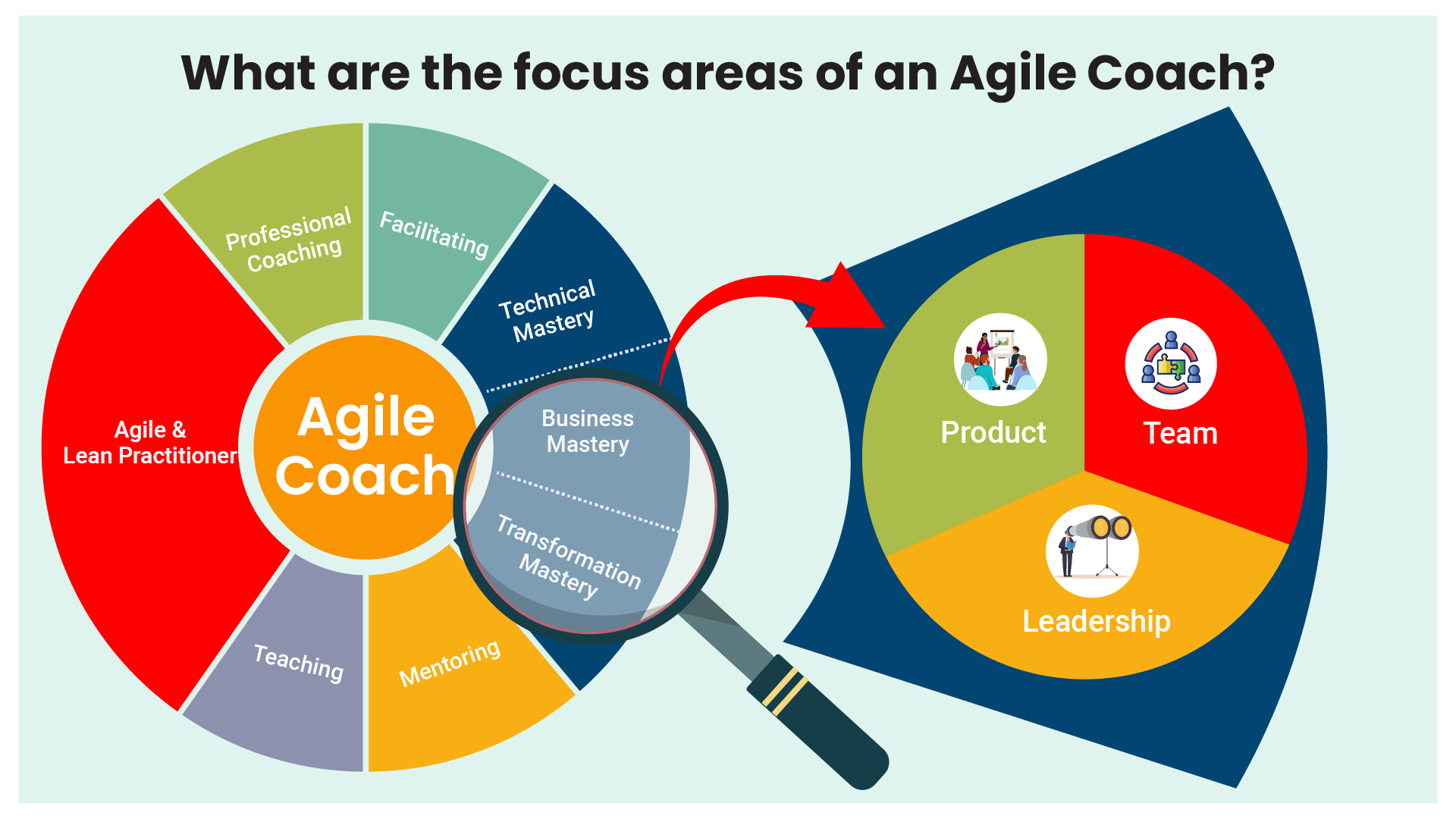
4
JanuaryAgile Coaches: Leaders of Business Dexterity
In a globe where adjustment is the only constant, services have to advance quickly to stay affordable. Dexterous approaches have actually become the favored strategy for organizations striving to provide worth, foster development, and adapt to unpredictability. Leading this transformation is the Agile Coach, a professional whose know-how and advice are crucial in embedding agility throughout groups and ventures.
The role of an Agile Coach goes beyond carrying out structures and procedures. They are cultural ambassadors that motivate groups to embrace the Agile attitude. This frame of mind emphasizes values such as cooperation, customer emphasis, and adaptability, developing the structure for sustainable organizational development.
 Agile Coaches start their trip by deeply recognizing the company's challenges, goals, and existing methods. By identifying toughness and locations for enhancement, they craft a personalized roadmap for Agile fostering. This strategy guarantees that the shift is smooth and lines up with the one-of-a-kind demands of the organization.
Agile Coaches start their trip by deeply recognizing the company's challenges, goals, and existing methods. By identifying toughness and locations for enhancement, they craft a personalized roadmap for Agile fostering. This strategy guarantees that the shift is smooth and lines up with the one-of-a-kind demands of the organization.
At the heart of Agile exists the principle of encouraging teams to self-organize and take possession of their work. Agile Coaches advisor teams in constructing trust, liability, and shared purpose. This change allows teams to deliver high-value results continually and respond effectively to consumer needs.
Cooperation is an additional essential emphasis for Agile Coaches. They promote open communication within and throughout teams, breaking down silos that commonly impede progression. By promoting openness and good understanding, they develop an atmosphere where varied perspectives add to far better decision-making and technology.
Resistance to transform is just one of the greatest obstacles in any kind of transformation trip. Agile Coaches are competent at addressing this resistance with empathy and strategic treatments. They involve with individuals to understand their concerns, supply quality on the advantages of Agile, and sustain them in navigating the transition.
Leadership plays a critical duty in maintaining dexterity. Agile Coaches advisor leaders to move their method from conventional command-and-control approaches to servant leadership. This change allows leaders to equip their teams, support their growth, and prioritize value delivery over job completion.
An Agile Train's influence extends past instant job success. They work to install Agile concepts at the organizational level, affecting how methods are developed and carried out. By aligning groups with the company's broader vision, they guarantee that initiatives are concentrated on providing lasting value.
The results of effective Agile coaching appear in the organization's ability to innovate, adapt, and flourish. Groups end up being much more natural, management ends up being more empowering, and the entire company develops strength to navigate market disturbances. This improvement placements services to lead in their sectors rather than simply maintaining.
For those considering a career as an Agile Train, the function demands a blend of technical proficiency and psychological intelligence. Familiarity with Nimble frameworks is crucial, however equally essential are abilities such as interaction, facilitation, and dispute resolution. Agile Coaches must be skilled at balancing critical purposes with the human aspect of adjustment.
In today's fast-evolving business landscape, the Agile Train is an important guide for companies looking for enduring success. They bring clearness, cohesion, and a customer-centric emphasis, making it possible for businesses to not only fulfill challenges but to transform them right into chances for growth.
Dexterous approaches have actually emerged as the preferred approach for companies making every effort to deliver value, foster technology, and adapt to uncertainty. Leading this makeover is the Agile Train, a specialist whose proficiency and support are vital in embedding dexterity across groups and enterprises.
They are cultural ambassadors who motivate groups to welcome the Agile way of thinking. At the heart of Agile lies the concept of equipping teams to self-organize and take possession of their work. Agile Coaches mentor groups in developing count on, liability, and shared purpose.


Reviews